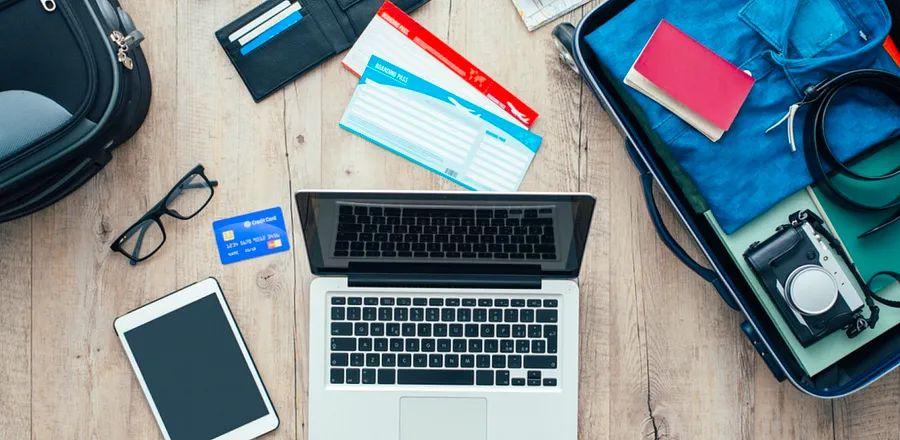Why Direct Bookings With Airlines Can End Up Costlier

During the early days of the pandemic, many travelers faced challenges when trying to rebook flights purchased via third-party sites like Orbitz and Kayak. Overwhelmed customer service lines and frequently changing airline policies led to chaos at these agencies, prompting many to choose direct bookings to sidestep future complications.
As travel normalizes post-pandemic, passengers are encountering a new challenge: booking directly with airlines now means navigating a complex array of fees, add-on options, and perplexing seat selection processes. Consequently, the final price at checkout often ends up being significantly higher than the initially advertised fare.
The issue has garnered so much attention that even President Biden has weighed in. “You deserve to know the complete cost of your ticket right when you’re comparing options,” he stated during a press conference unveiling a new Department of Transportation initiative aimed at compelling airlines to reveal these fees. “This way, you can choose the ticket that truly offers the best value for you.”
Attempts to curb airline fees are not a new phenomenon. The Obama administration previously attempted similar regulations without success. Until substantial reforms are implemented, it will be airline customers who bear the brunt of these costs, especially when they opt to book through the airlines' own websites and apps.
The Age of Fees
With the emergence of budget airlines like Spirit and Frontier, U.S. carriers have significantly changed their revenue strategies. Instead of relying on profit margins from ticket sales—which are highly competitive—airlines are now placing greater emphasis on “ancillary revenue” generated from additional fees, credit card rewards programs, and seat upgrades.
From 2019 to 2021, the share of ancillary fees in total revenue for major U.S. airlines rose by six percentage points, increasing from 16.1 percent to 22.2 percent, according to a report by IdeaWorksCompany, a firm specializing in airline industry analysis. This trend of growing fee revenue has been consistent since at least 2007.
The takeaway for consumers: Reducing travel expenses is increasingly tied to avoiding additional fees rather than just focusing on the initial ticket price. Some of these extras, like carry-on bag fees, are straightforward to bypass, while others, such as the distinctions between basic economy and regular economy (or “main cabin”), can involve more complicated choices.
Conflicting Priorities
Airlines prefer customers to book through their own websites and apps for a straightforward reason: customers who do so typically spend more on ancillary fees. American Airlines clearly expressed this preference in a filing with the Securities and Exchange Commission, highlighting its reliance on third-party services like online travel agencies as a potential risk.
The filing noted, “We also rely on these distribution channels to enhance their capabilities in distributing and collecting revenues for ancillary products (e.g., fees for selected seating).”
In essence, American Airlines acknowledges that a significant portion of its revenue comes from ancillary fees and is concerned that third-party sellers may not promote these fees as vigorously as the airline does. This discrepancy creates an opportunity for informed consumers.
Third-party platforms have a vested interest in clarifying these options for customers, according to Melanie Fish, a spokesperson for Expedia, a third-party travel booking service.
“While browsing flights in the app, travelers can choose a fare and view what’s included in the airline's ticket price, such as seat selection, cancellation policies, or changes, along with any fees for checked baggage, if applicable,” Fish stated via email.
The distinction between basic economy and main cabin fares exemplifies the conflict between airlines' goals and their customers' needs. Airlines aim to highlight lower basic economy fares in search results, encouraging shoppers to upgrade to pricier main cabin options at checkout. This tactic not only raises ticket costs but also complicates comparison shopping. Online travel agencies can clarify these distinctions and help customers save money.
“Travelers can browse through the various fare options like basic economy, economy, etc., and see all the details, prices, and add-ons displayed side-by-side, making it simple to choose the fare that best suits their needs,” Fish explained.
However, online travel agencies also have their own motivations to include additional charges, such as for rental cars or trip protection. Therefore, customers should remain cautious of extra costs, even when using these platforms. Yet, as airlines continue to emphasize ancillary fees and travel booking sites work to present flight costs clearly, travelers can save money by booking through third parties.
Evaluation :
5/5



